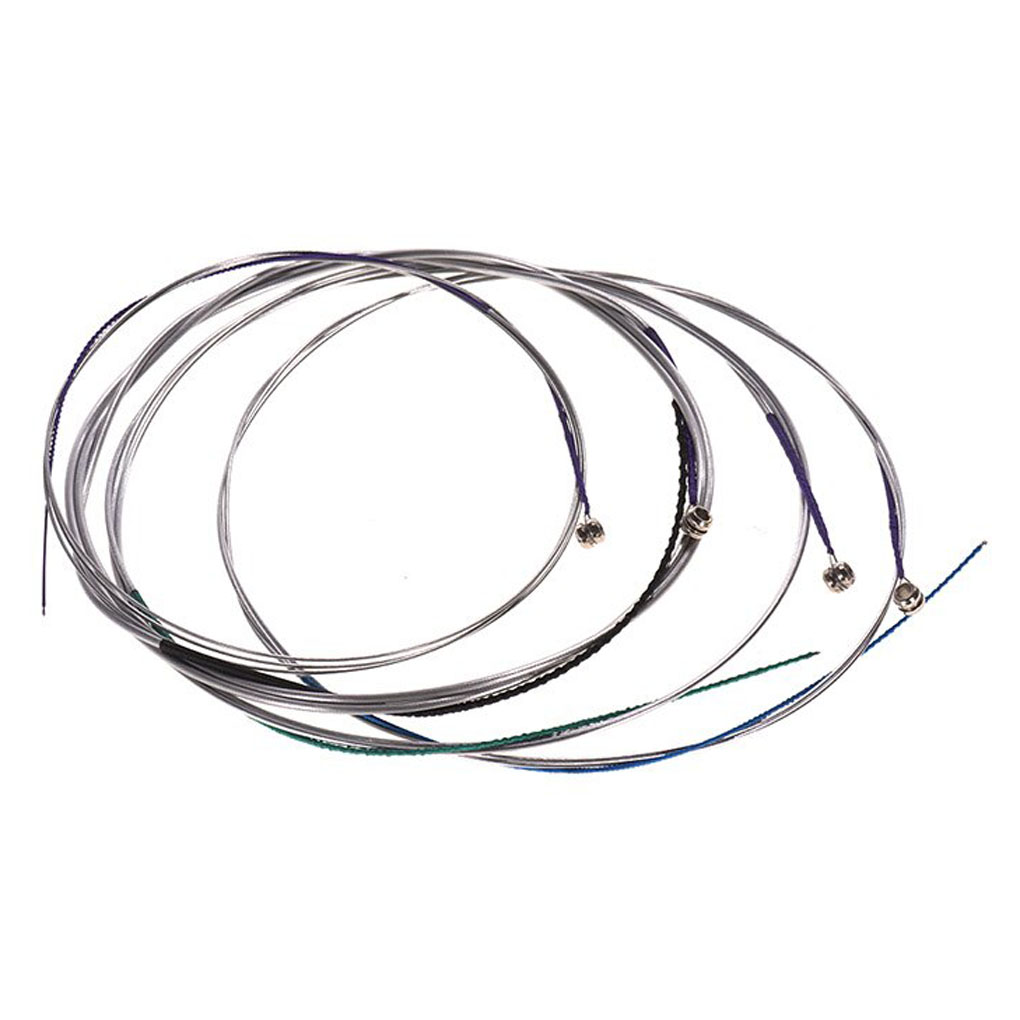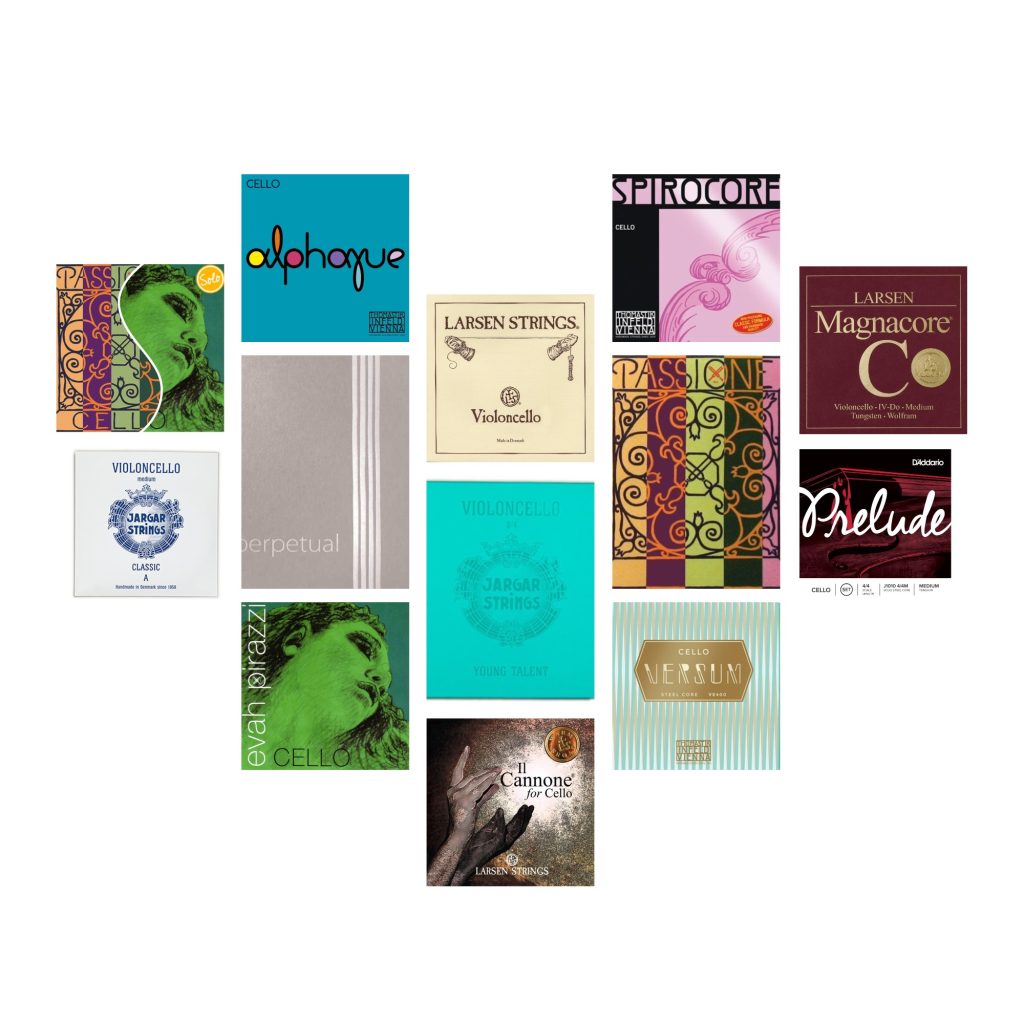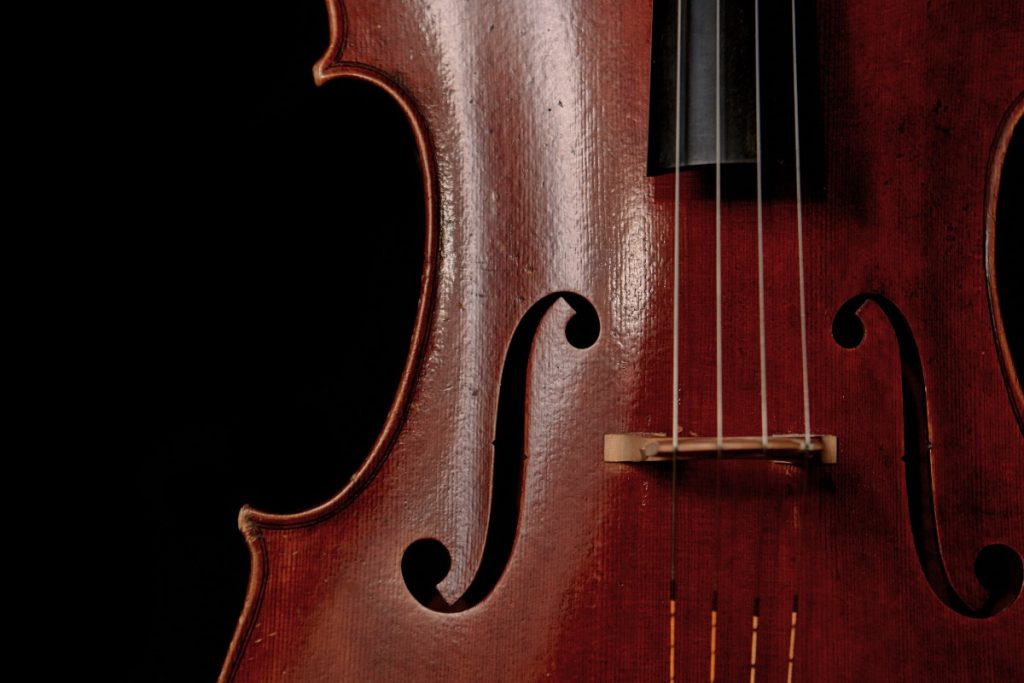Choosing the right cello strings is a crucial decision for any cellist, as it can significantly impact the sound and tone of the instrument. This article will provide detailed information to help you choose the perfect cello strings.
However, if you’re just looking for a quick list of the best cello strings, take a look at our shortlist of recommended best cello strings, where we list the best strings for all levels of cello players. You can also browse our complete range of cello strings for sale.
Types of Cello Strings
The first step in choosing the right cello strings is understanding the available types. The four most common types of cello strings are:
- Steel Strings: Steel strings are known for their bright and focused sound, making them an excellent choice for players who prefer a more aggressive sound. Good steel core cello strings options are Larsen Magnacore, Evah Pirazzi Gold and Jargar Classic.
- Gut Strings: Gut strings are the oldest type of cello strings, and they produce a warm and mellow tone that many cellists love. However, they are more sensitive to changes in humidity and temperature, which can affect their sound and tuning. The most popular set of Gut cello strings by far is Pirastro Eudoxa. In case you wondered, gut strings are made from Sheep intestines, not cats! Just to put a popular internet misconception to bed.
- Synthetic Core Strings: Synthetic core strings are a popular choice among cellists, as they offer a balanced tone and are more affordable than gut strings. The other benefit of gut strings is that they are not affected by temperature or humidity changes. They offer stable tuning and a quick play in time. The longest-serving synthetic cello strings are Dominant, tried and tested, and very popular.
Factors to Consider
When choosing cello strings, there are several factors to consider, including your playing style, the type of cello you have, and budget. Let’s take a closer look at each of these factors.
Playing Style: The music you play and your playing style will influence the type of cello strings that will suit you best. For example, if you play Chamber and Orchestral music, something like our Combination set of Spirocore and Larsen strings would suit. In comparison, solo players prefer a dedicated set of strings like Evah Pirazzi Solo strings.
Type of Cello: The type of cello you have can also impact the choice of strings. For example, if you have a bright-sounding cello, you may want to choose strings that will balance its sound.
Budget: Cello strings can vary in price a lot! It’s essential to consider your budget when choosing strings. While gut strings are known for their exceptional sound quality, they are also the most expensive. On the other hand, synthetic core strings are more affordable but still offer excellent sound quality.
Choosing the Right Tension
In addition to the type of cello strings, you must choose the correct tension. For most cellists reading this guide, Medium Tension will be the one you want. The tension, sometimes called gauge, refers to the thickness of the string, and it can significantly impact the sound of the cello. Here are the three most common gauges:
- Low Tension/Light Gauge: Light gauge strings produce a brighter sound and are easier to play. However, they may not produce enough volume for some players.
- Medium Tension/Medium Gauge: Medium gauge strings are the most popular choice among cellists, offering a balanced sound with good projection.
- High Tension/Heavy Gauge: Heavy gauge strings produce a darker sound and are ideal for players who prefer a more robust and resonant tone.
Conclusion
Choosing the right cello strings is crucial for any cellist, and we hope this article has provided you with valuable information to help you make an informed decision. When selecting cello strings, consider your playing style, the type of cello you have, and your budget. Remember to experiment with different types and gauges to find the perfect strings that suit your needs. If you have any further questions or need more information, don’t hesitate to contact one of our experts by telephone at 01332 840391 or visit our store and workshop in person. We are always happy to help our customers.






